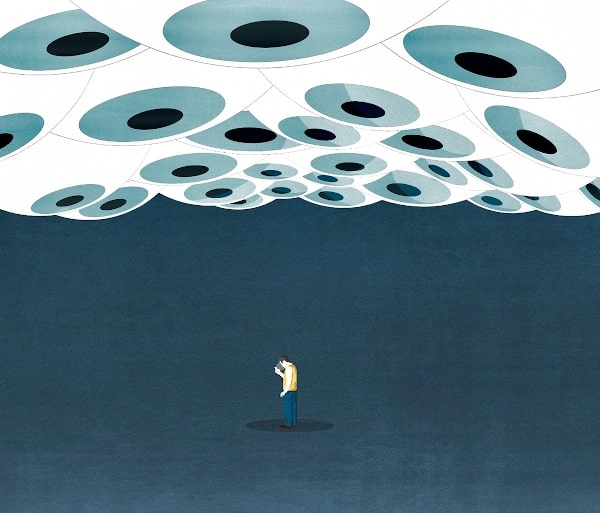Privacy in the middle of pandemic

“This is not going to end soon”, my father said, the other day on the call. Deserted roads, Masked faces and petrified from deep inside. This is all we are right now. This is all we are going to be for a while now.
Classes and meetings have been shifted to Zoom sessions. Theatres have been captured by OTT services like Netflix and Amazon Prime Videos. People are scared to go out for buying their necessities, so they are relying more on online stores. In this gloomy time, We are betting on tech. We are betting on it because it has the potential to connect without damaging our isolation. We can touch without touching.
Being so dependent on tech raises many questions on privacy. Although we should be vigilant about privacy, in practice, we are very sloppy. Technology can be a dangerous affair in a time where we are entirely soaked up by this. Tech is very much similar to a gun. We are not scared of the gun, but the one who pulls the trigger.

Most often, privacy is misunderstood by secrecy. Protecting is not hiding. According to Hawthrone effect, people act differently when they are being watched. We can’t be ourselves. Even if we have nothing to hide, we don’t want the data we produce every day on the internet knowingly and unknowingly to be seen by anyone. These data can tell everything about our personality. It has the potential to control our thoughts. It is eradicating intellectual individualism from the society we live in.
Nothing is free. It’s all about money. There is a famous saying - “If you are not paying for the product, you are the product”. You don’t pay anything to these organizations to use their services. Still, they need to get money out of it to sustain the services, to support the livelihood of the people of the organization. They can’t do it for free, and it’s fair of them to make some money.
Alternatively, we can pay for the services they are providing. They get their money; we get our privacy, win-win for both. There will be no tracking because the tracking is there just for showing us targeted ads. But there is a caveat. This approach will limit the people who can use these services and soon the internet will become more of a privilege. We have to choose between Scylla and Charybdis. We have to decide what for us, is less evil.
The proof of them tracking us can be seen in the semantic results they show us. In the book, “Filter bubble” by Eli Pariser, the author has shown how the same keyword, searched by two different people gave different results. They both searched for the word, “Egypt”, but one got the result related to “Protests in Egypt” but another one got the results related to “Egypt tourism”. So, it’s quite evident that the results can differ from person to person, and there is no doubt that they are keeping an eye on us.
The biggest concern that I have is, recently, Google has started monetizing YouTube through a subscription plan. Alongside a few more benefits, YouTube will stop showing you ads as soon as you get the subscription, which I appreciate very much. But if they are planning not to show ads to subscribed users, then what’s the point in collecting data. Maybe they can argue that, how will they show recommendations? How will they engage the audience? But, at least, ask the person who is paying for it. You are not giving him a choice. “Don’t be evil”, was there on Google’s IPO in 2004. Even if they say it, do they mean it?
Final Thoughts
Data is money. Not everyone can choose privacy over cash, but some people are privileged enough to do so. Not all the people are happy to trade their privacy. We can’t deny that these internet services are as important as anything else, especially at the time of great hardship. They are our friends in need, and there are few lines they should never cross. In the words of Stephen King -
“Friends don’t spy; true friendship is about privacy, too.”
Be safe. 🔒